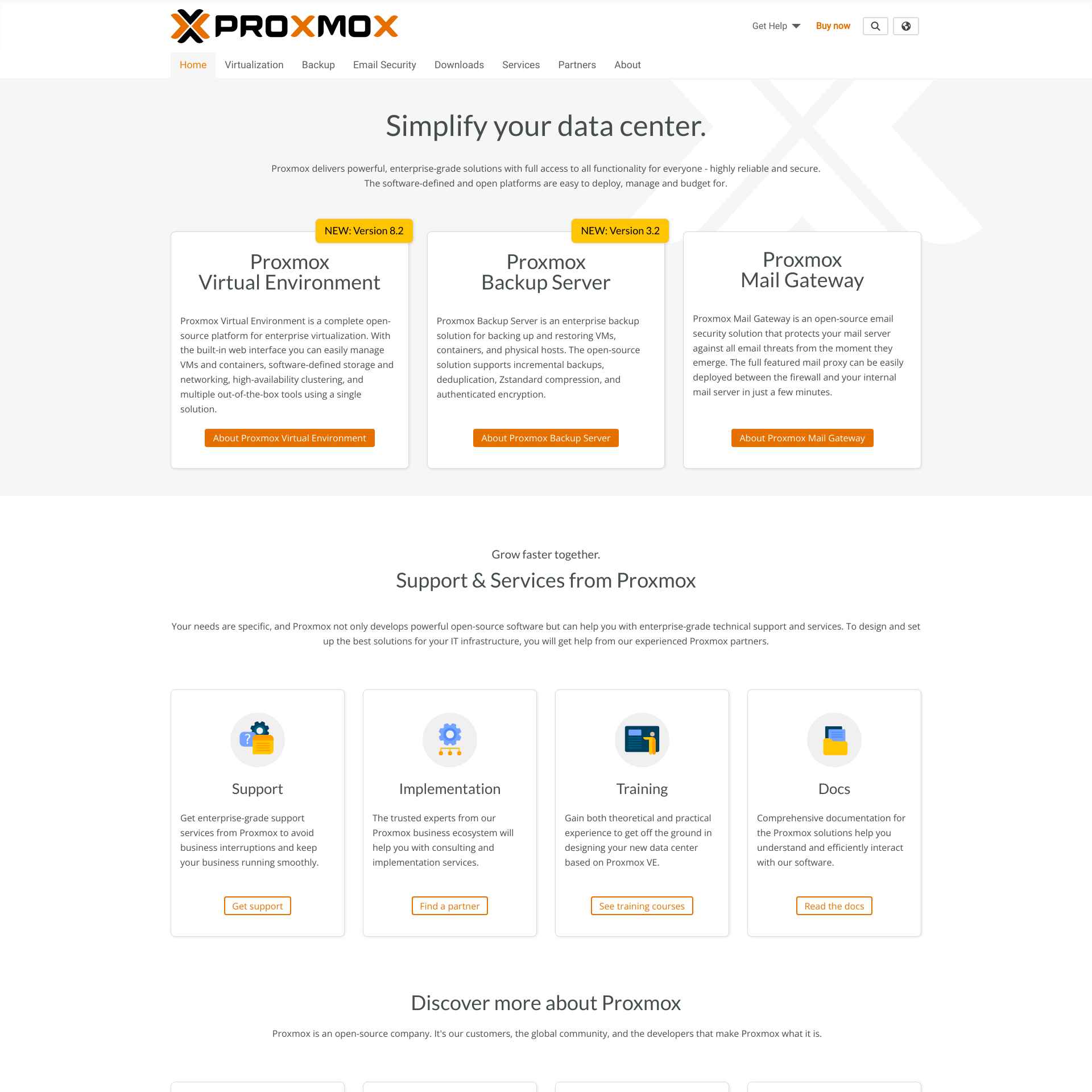Proxmox, the open-source virtualization platform, is revolutionizing the way businesses manage their IT infrastructure. With its powerful features and user-friendly interface, Proxmox enables businesses to efficiently deploy and manage virtual machines, containers, and clustered systems.
One of the key advantages of Proxmox is its flexibility. It supports both KVM-based virtualization and container-based virtualization with LXC, giving users the ability to choose the most suitable virtualization method for their specific needs. This flexibility allows businesses to optimize their resources and tailor their virtual environments to meet their individual requirements.
Proxmox also offers advanced management tools, such as the Proxmox VE web interface, which provides a centralized dashboard for administrators to monitor and manage their virtual infrastructure easily. The platform supports a wide range of operating systems, making it compatible with various workloads.
Furthermore, Proxmox boasts impressive scalability capabilities through its support for clustering. Businesses can create high availability clusters, distributing workloads across multiple nodes to ensure maximum uptime and performance. This feature makes Proxmox an ideal choice for organizations with demanding workloads and stringent uptime requirements.
In terms of security, Proxmox provides advanced features like live migration and backup tools, ensuring data protection and minimizing service disruptions. The platform also benefits from an active community and regular updates, guaranteeing continuous development and support.
While Proxmox offers unique features and advantages, it faces competition from other virtualization platforms. One of its major competitors is VMware, which has dominated the virtualization market for years. VMware offers a comprehensive range of products and services, including vSphere, ESXi, and VMware Fusion. However, VMware is a proprietary solution and can be costly for businesses, especially for small and medium-sized enterprises.
Another competitor is Microsoft Hyper-V, which is included with Windows Server. Hyper-V provides similar functionality to Proxmox and is a popular choice among businesses heavily invested in Microsoft technologies. However, Hyper-V lacks some of the advanced features found in Proxmox and may not offer the same level of flexibility.
In conclusion, Proxmox stands out as a versatile and powerful virtualization platform, offering businesses a cost-effective and flexible solution for managing their IT infrastructure. While it faces competition from vendors like VMware and Microsoft, Proxmox’s unique features, scalability, and open-source nature make it a compelling choice for businesses of all sizes.
Link to the website: proxmox.com



